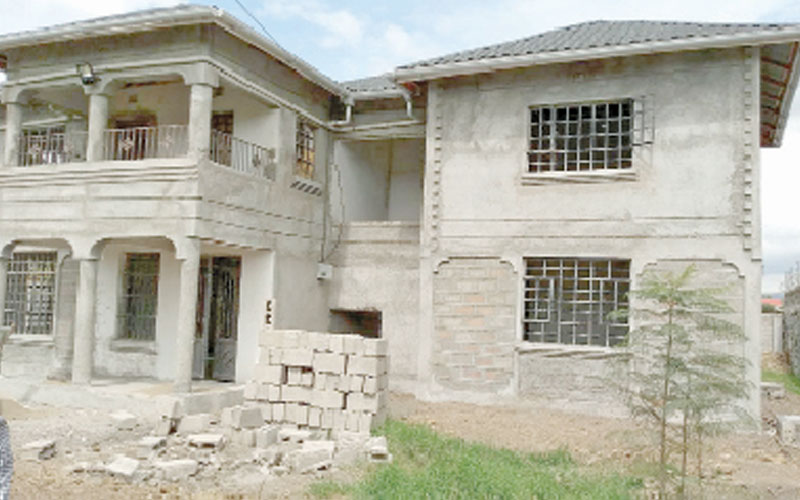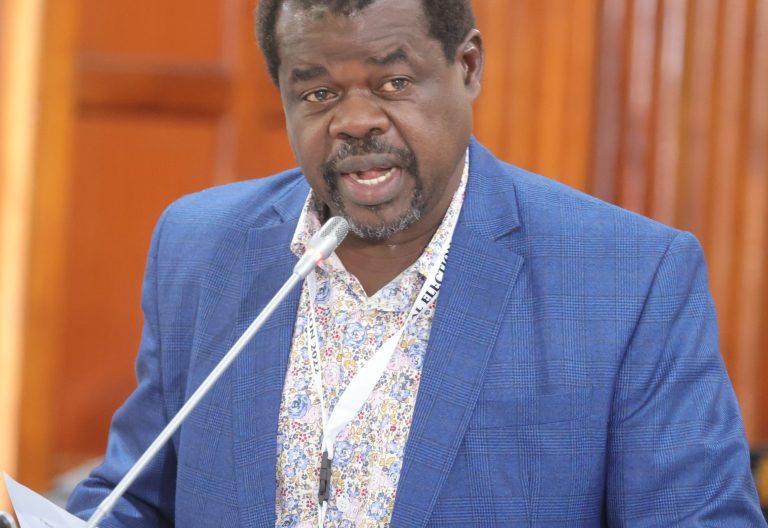Betting on interlocking blocks for affordable housing

By adopting alternative construction technologies, experts say contractors and prospective building owners can cut costs and maximise returns while maintaining quality standards. Kaka James Concrete Enterprise in Nakuru is one such company that has embraced interlocking blocks to build sustainable house designs in a bid to meet rising demand for truly affordable housing.
Instead of conventional stones, the blocks, which are now selling like hot cake in Nakuru are compressed with cement and waste from quarries using a hydraulic machine,and the result is eco-friendly building materials, which make for a very affordable and appropriate means of meeting the demand for decent homes. Despite its lightweight, a modular house is strong enough to defy natural calamities, better than homes built using stones.
The technology involves production of bricks that interlock with each other during construction, therefore eliminating the need for mortar to bind the building.
Thermal insulation According to the pioneer of the company, James Mwangi, they are working in line with the government’s Big Four Agenda of affordable housing saying adopting this technology is key in providing affordable housing for millions dreaming of owning a home.
Thermal insulation
He notes that the interlocking blocks can save the cost of building a new house by up to 45 per cent and thanks to his venture, people living in mud houses are gradually converting to permanent homes.
The technology offers other benefits such as thermal insulation, which makes the houses comfortable regardless of temperature changes. The houses are sound proofed and offer high resistance to fire and other shocks.
Kaka James describes his seven-year journey in the business as one started by chance. “I bought a bag of cement at Sh750 to build a ventilation block, only to find myself building blocks that laid the first foundation stone for a company that is now worth millions of shillings,” he says.
Seeing that the business had a great potential of making him money, he borrowed Sh50,0000 and set up the company that has since helped provide a shelter to thousands of Nakuru residents.
He invested in the hydraulic machines used for making the blocks and is currently making at least 2,000 blocks daily, each going for between Sh60 and Sh70 .
His target market includes schools, churches, private individuals, non-governmental organisations and the Constituency Development Fund.
The hollow blocks, which are made of quarry dust and cement he says are more effective and easier to conserve the environment adding that quarries have for a long time been a contributor to environmental degradation.
Create employment
By this Mwangi now wants the government to embrace such blocks as one way to conserve environment and create employment to thousands of youths languishing in poverty.
“Quarries have for a long time contributed to environmental degradation. The government should embrace such blocks as one way to conserve environment and create employment to thousands of youths who are languishing in poverty,” he said.
He observed that Technical Vocational Education and Training Institution students can also be taught alternative building technologies such as this since it reduces costs by removing some of the components that crank up costs, and of course, without any comprise on the structural integrity of the erected building.
The entrepreneur has set up shop in four counties including Nakuru, Kajiado, Narok and Laikipia.
Esther Wangare, a beneficiary of the products, said the new technology was much cheaper and that she built her three-bedroom house for Sh1.7 million, a big saving by almost half.
“This new technology is much cheaper. If other contractors embraced it. Any low income families will be able to own homes,” said Wangare.
This comes at a time when local demand for low cost housing far exceeds the supply thanks to speedy urbanisation and a growing middle class.
Statistics show that the annual housing supply in the country is 50,000 units against a demand of 200,000 units.












